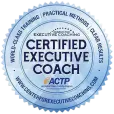
Every Move Matters
“In planning, never a useless move; in strategy, no step taken in vain.” — Sun Tzu
If you’re like most small business owners I know, you’re busy almost all the time. The problem is that being busy doesn’t always mean being productive. Days get filled with tasks that feel urgent but don’t contribute to long-term success. Here’s what Sun Tzu is saying: every action, whether in planning or execution, should serve a purpose.
This principle challenges us to be intentional with every decision. In planning, it means ensuring every element contributes to the bigger picture. In execution, it means that every step taken should move the business closer to its goals. Wasted effort is wasted opportunity.
Let’s explore how you can apply this mindset to your business.
Stop Doing What Doesn’t Work
It sounds so obvious, right? Still, it’s easy to get stuck doing things because “that’s how we’ve always done it.” But holding onto what doesn’t work drains your time, money, and energy. Sun Tzu’s principle of “no useless moves” asks us to evaluate every process, project, and activity. If it doesn’t contribute to your goals, it’s time to let it go.
Example: At Hearthstone Café, the owner had been running a midweek free coffee promotion for years. While it brought in a small spike in foot traffic, an analysis showed that most of the participants were one-time visitors who didn’t return. Regular customers weren’t taking advantage of the deal. Realizing the promotion wasn’t adding value, the owner scrapped it and redirected resources into a loyalty rewards program for regulars. Within three months, repeat visits increased by 15%, and customer satisfaction improved.
Key Insight: Inefficient processes and ineffective promotions waste time and money. Redirecting those resources to what works can create significant results.
Challenge: This week, write down three activities, campaigns, or processes in your business that seem like busywork or aren’t delivering results. Choose one to streamline, delegate, or eliminate this month.
Plan with Precision: Every Move Should Serve a Purpose
Planning isn’t about doing more—it’s about doing what matters. Sun Tzu reminds us that a good plan eliminates distractions and focuses only on actions that align with your larger goals.
Example: The owner of Turning Pages Bookstore wanted to host regular author events. At first, they aimed for a weekly schedule, inviting authors from various genres. But turnout was inconsistent, and the results didn’t justify the effort. After reassessing their plan, they narrowed their focus to children’s book events, which consistently drew larger crowds and increased related sales. By building a calendar of themed storytimes, activity kits, and family-friendly snacks, the bookstore grew its reputation as a family destination and boosted revenue.
Key Insight: Purposeful planning eliminates wasted effort and focuses your resources where they’ll have the most impact.
Challenge: Review your current business plan or strategy. Identify one area where your efforts feel scattered or unfocused. Narrow your focus to one clear objective and prioritize it.
Execute Without Wasting Resources
Even the best plan will fail if execution is sloppy or inefficient. Sun Tzu’s advice to avoid “steps taken in vain” reminds us to be thoughtful and deliberate with our actions. Every step should contribute meaningfully to your goals.
Example: Poppy’s Pastries wanted to expand into delivery. Instead of launching citywide immediately, they tested the concept in one neighborhood. The pilot program offered a limited menu, and they partnered with a delivery platform to simplify logistics. By gathering feedback and making adjustments during the test phase, they refined their process before expanding. The result? A smooth rollout and a steady new revenue stream.
Key Insight: Start small, test often, and refine as you go. Thoughtful execution reduces risks and maximizes your chances of success.
Challenge: Identify your next big initiative and break it into smaller, testable steps. What’s one small-scale test you can run to gather feedback before committing fully?
Focus on the 20% That Drives 80% of Results
Sun Tzu’s principle of efficiency aligns closely with the 80/20 rule, which shows that 20% of your efforts typically drive 80% of your results. The key is identifying and amplifying those high-impact activities while minimizing the rest. By identifying the 20% of actions, products, or customers that drive 80% of your results, you can focus your resources where they’ll have the greatest impact.
How to Apply the 80/20 Rule to Your Small Business:
- Revenue: Identify your top-performing products or services and focus your marketing efforts there.
- Customers: Build relationships with the top 20% of your customers who generate the majority of your revenue.
- Time: Prioritize high-value tasks and delegate or drop the rest.
- Marketing Channels: Focus on the few marketing strategies that yield the most leads or sales.
Example: Maple Valley Inn discovered that 20% of its offerings, like its signature wellness retreats, accounted for 80% of its revenue. Instead of spreading resources across less popular packages, they doubled down on enhancing and promoting their bestsellers, resulting in increased bookings and higher profit margins.
Key Insight: By focusing on what works and cutting what doesn’t, you simplify your operations and free up resources for meaningful growth.
Challenge: Conduct an 80/20 analysis of your business. Identify one high-impact area to prioritize and one low-impact activity to reduce or eliminate this quarter.
Measure Success with Meaningful Metrics
Not all metrics are created equal. It’s easy to get distracted by metrics that look good but don’t drive real growth. Sun Tzu’s principle reminds us to focus on results that matter.
Example: Morning Roast Café initially tracked Instagram followers but realized it wasn’t driving sales. After shifting their focus to customer retention and average ticket size, they launched targeted loyalty campaigns. These changes increased profits by 20% over six months.
Key Insight: The most valuable metrics are those that directly align with your business objectives and reflect meaningful progress.
Challenge: Look at the metrics you’re currently tracking. Eliminate one that doesn’t directly support your goals and replace it with something actionable, like customer retention or repeat business.
Build a Culture of Purposeful Planning
Purposeful planning isn’t just for leadership—it needs to be part of your team’s mindset. When everyone understands the value of efficiency and focus, your business operates at a higher level. It’s easier for employees to think critically and understand how their contributions directly impact success.
Example: Hearthstone Café introduced a weekly “Focus Fifteen,” where the team spent 15 minutes identifying inefficiencies and brainstorming solutions. This simple practice led to faster inventory management, improved customer service, and new ideas for engagement.
Key Insight: Involving your team in purposeful planning creates a culture of shared commitment to efficiency and progress.
Challenge: Set aside time this week to review a specific process or task with your team. Identify one inefficiency and brainstorm ways to improve it.
Your Next Steps: Acting with Purpose
“In planning, never a useless move; in strategy, no step taken in vain.”
Sun Tzu’s wisdom isn’t just about avoiding waste—it’s about achieving victory by focusing on what matters most. Every plan, decision, and action in your business should align with your goals and drive meaningful progress.
Here’s how to start:
- Audit your business for wasted activities or resources.
- Use the 80/20 rule to prioritize high-impact actions.
- Break large projects into smaller steps and test before scaling.
- Engage your team in identifying inefficiencies and brainstorming improvements.
Every wasted move costs time, money, and energy. But purposeful action builds progress. By planning with intention and executing with precision, you can position your business for sustainable growth and long-term success.




